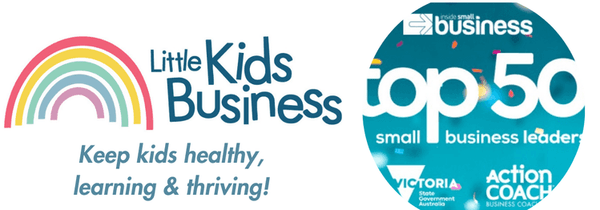Unlike school, there are no hard and fast rules about what age a child must be to enrol in early childhood education and care service (or child care).
There are excellent care options for all ages, from newborn to preschool, and child care timing comes down to what is practical and feels best for your family.
Factors such as your employment situation, local care options and your child’s nature may influence your decision. With that in mind, let’s consider the needs of different ages and how different types of child care can support them.
What child care needs do babies have?
In their first year, babies grow and learn more than they do at any other age. Between the ages of zero to 18 months, it’s important that a baby feels loved and secure, as well as having an outlet for their curiosity. They need a carer who will play, communicate and bond with them. They also need a clean, safe environment where they can discover and explore.
For these reasons, undivided attention from one care-giver and in-home care is ideal for babies. However, a child care centre with a small and attentive carer to baby ratio can work well too.
What child care needs do toddlers have?
Although toddlers are on the move and asserting their independence, children aged from 18 months to three have similar child care needs to babies. In other words, they need very responsive care and a safe environment to explore.
Child care is an opportunity for toddlers to learn about their limits, develop their language skills and work on their physical skills, such as ball-kicking and pencil-gripping.
And because toddlers need carers that are as patient as they are energetic, home-based nannies or au pairs are great options. Alternatively, child care centres or family daycare with a low carer to child ratios and good staff retention are good too.
Sleep tight even in childcare in your very own personalised Kindy bedding
What child care needs do preschoolers have?
From the ages of three to five, preschoolers are more social, more understanding of feelings and are building real friendships. They’re also increasingly in control of their bodies, which means they’ll benefit from child care activities that practice their fine motor skills (e.g. painting and putting on dress-up clothes) and gross motor skills (e.g. climbing frames and games of tag).
Centre-based care is a great way for preschoolers to practice their language skills, social skills and try new things. Quality carers will teach your child important early skills and help them get ready for school.
Saying that home-based care can be great too, especially when paired with community activities like playgroups or swimming lessons. As long as your child is having regular contact with kids their age and accessing age-appropriate resources and activities, then in-home care has a lot to offer.
When is the right time to start your child at care?
Of course, every child is different, and where one toddler may flourish with a nanny, another will thrive in a child care centre, and another might prefer the middle ground of family daycare.
To help you decide when to start your child at care and what type to go with, think about:
- Your schedule: do you need care at home, close to work, full-time or a couple of days a week?
- Your child’s personality: are they confident and social or do they get overwhelmed by noise and activity?
- Your child’s needs: do they require one-on-one care, or will they benefit developmentally from a larger group size?
- Group consistency: are the carers and children the same each week?
- The pros and cons of different child care options: which of these options suits your family best?
At the end of the day, there is no perfect age for every kid to start child care. So choose what feels right and what works practically for your family.
And remember that once they are enrolled, quality child care will help your child learn, grow and prosper, whether they’re three-months-old or three-years-old.




